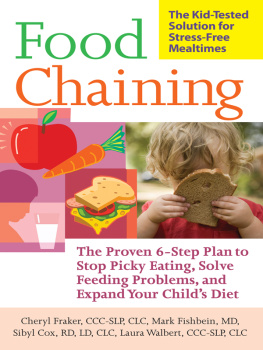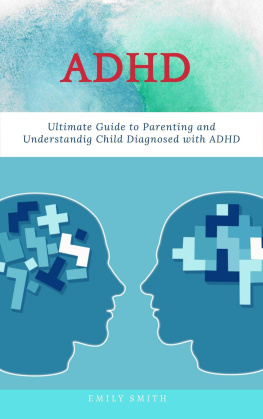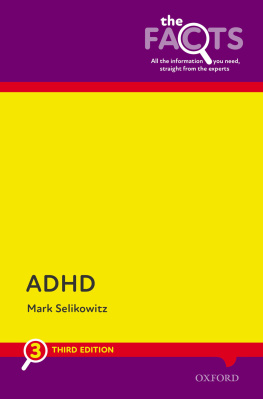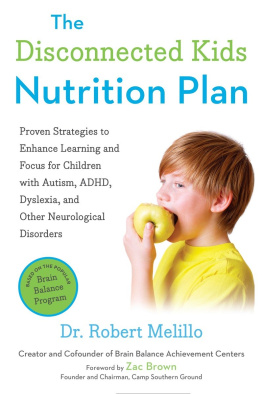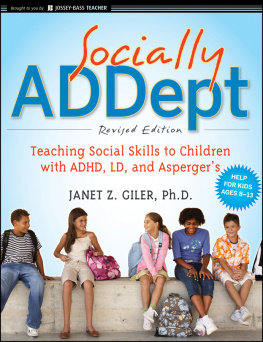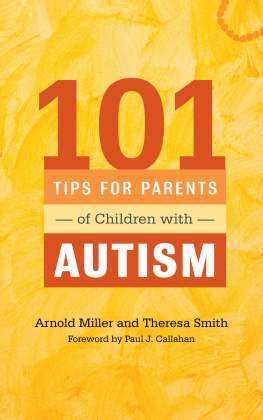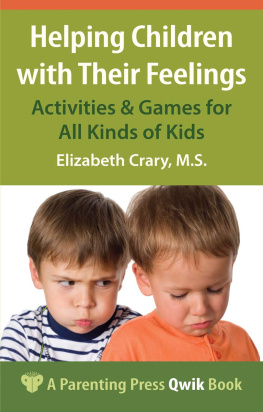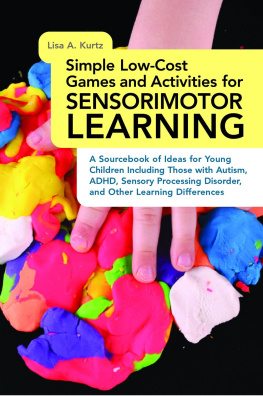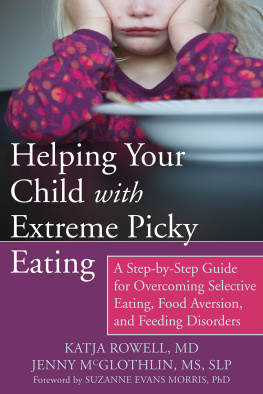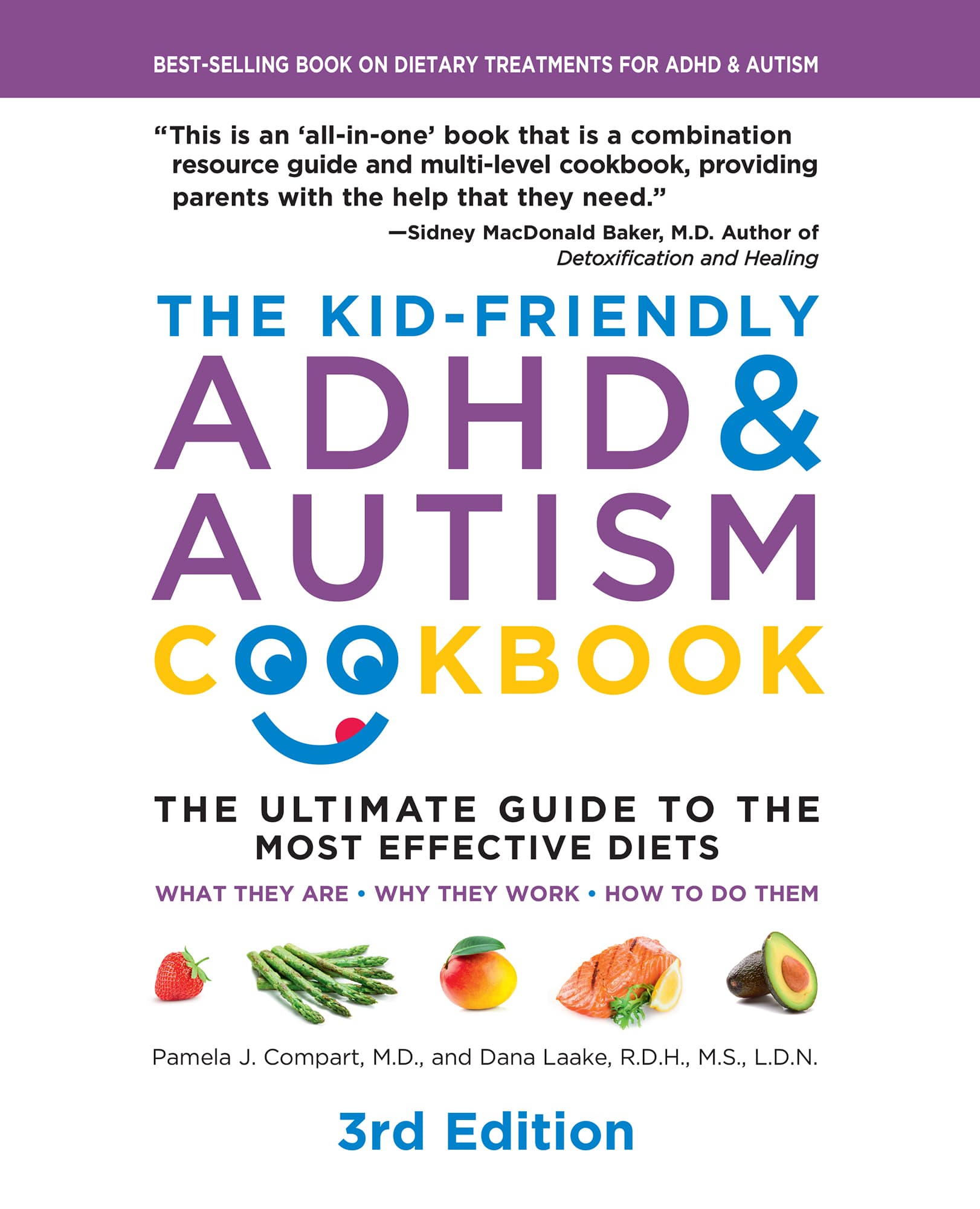3rd EDITION
THE KID-FRIENDLY
ADHD & AUTISM COOKBOOK
THE ULTIMATE GUIDE TO THE MOST EFFECTIVE DIETS
WHAT THEY ARE WHY THEY WORK HOW TO DO THEM
Pamela J. Compart, MD and Dana Laake, RD, MS, LDN

Preface
When I went to medical school over twenty years ago, nutrition was given very little attention. Although I attended a very open-minded, cutting-edge school, my nutrition training consisted of one week of lectures. This left my colleagues and me with the impression that, at the time, nutrition was not felt to be very relevant to the practice of medicine. As I proceeded through my traditional training, not much happened to dispel that notion. It was only after I completed my formal training and began practicing in the real world of developmental pediatrics that I realized how critically important nutrition is to overall health and, in particular, to brain functioning.
Early on in my training, when parents would ask me if they should try special diets or nutritional supplements for their special-needs children, I distinctly remember advising them not to waste their time, as there was no evidence to show that they helped. I wish now that I could find all those parents and tell them they were right to be thinking outside the box. Parents have always been motivated to look at all options to help their children, especially those with special needs. It is only now that science is catching up with what those parents asked many years ago. Part of the role of this book is to explain the science behind the diets and why these diets may be worth trying with your child.
I am grateful that I came to an understanding of nutrition via a traditional medical route. I was not at all predisposed to believing that diets would help change behavior, development, and brain function. So when I saw diets working, I knew it was not a placebo effect. Still, I wanted to know why they worked and have now devoted my medical practice to understanding these less traditional approaches. My traditional training also reminds me that there is no one way to treat children with special needs. Many people in both camps (traditional and nontraditional) assume that the type of intervention they favor is the right one. I believe strongly in using all the tools I have at my disposal to help children reach their potential, whether those tools are traditional (therapy, school placement, medications, etc.) or less traditional (diet change, nutritional supplements, digestive support, etc.). This book addresses some of these less traditional tools, specifically diet and nutrition.
Dr. Sidney Baker, in his book Detoxification and Healing, outlines a helpful context for thinking about the role of diet in brain function. In essence, he asks two basic questions that, for me, form the basic foundation of my approach to caring for children with special needs. Paraphrased here, these two questions are:
Is this childs body and brain getting all that is needed to perform optimally?
Is there something getting to this childs brain that interferes with its ability to perform optimally?
Diet and nutrition are clearly involved in answering both of these questions. An optimized diet, along with nutritional supplements, provides nutrients that are essential for body and brain functioning. In addition, breakdown products from certain foods (particularly dairy and glutens) can interfere with brain functioning. These concepts will be explained further in the chapters that follow. The recipes in this book are designed to give the body and brain what is needed and to eliminate those substances that are most likely to interfere with function.
In medicine, there is a saying that you dont have to remember everything, you just have to remember where you filed the article. In the same way, I dont have to know everything about nutrition; I have to know who my good resources are to complement my medical knowledge of health and nutrition; Dana Laake, my coauthor, is such a resource.
Pamela J. Compart, MD
My introduction to nutrition began through a career in dental hygiene. I learned the powerful effects of food on the body and mind from Emanuel Cheraskin, a physician and dentist, who was an internationally renowned researcher and expert in the field of nutritional medicine. While attending a course led by this pioneer, whose influence would guide me for decades, I fell in love with the fields of nutrition and preventive medicine. Cheraskin opened the first of many doors in this challenging and steadily evolving field. His legacy was great, but I remember him most for the simplicity of his favorite statement, Man is a food-dependent creature; if you dont feed him he will die. If you feed him improperly, a part of him will die.
In 1979, George Mitchell, our family physician, invited me to join him in opening a preventive medicine practice in Washington, D.C. He introduced me to the innovators and visionaries in nutrition and alternative medicine. Though criticized in their new ideas, most prevailed and received the recognition they deserved.
Early on in the practice, I experienced a challenge when a seven-year-old boy was brought in by his distraught mother. She said that he was a conundrum to his family, teachers, and pediatrician. Beginning at two years of age, he was physically violent toward others, including routinely striking his father, and was unable to function in school because of poor attention span, impulsivity, acting out, and aggression. He had chronic bowel problems, wet his bed nightly, and was in a constant state of agitation and unhappiness. Showing the reports from his teachers, his mother cried as she confessed, each teacher tells me that he is the worst child they have ever encountered.
A review of his diet revealed that milk products and glutens (wheat) were his most common and favorite foods. This occurred in the era when there was little acceptance of the connection between food and behavior. I had read about the connections in newsletters from Bernard Rimland, PhD, founder of the organization that became the Autism Research Institute. Although we did not have the quality and accuracy of testing so prevalent today, the anecdotal evidence was growing. Since a trial of food avoid- ance fits the medical dictum, do no harm, I recommended a trial avoidance of milk products and gluten.
The results stunned me as much as the parents. After the first few days without milk products and gluten, the boy became worse, which was what we understood to be withdrawal. But within a week of avoidance, he began to improve; he cooperated at school, began to progress in achievements, received outstanding behavior reports, and stopped aggressive and impulsive behaviors. His bowels improved, and he no longer wet the bed at night. Most importantly, he stopped hitting his father and began hugging again. Thinking he was cured, his parents allowed him to have cake and ice cream at a birthday party, only to have him relapse into the full spectrum of aggressive symptoms and bed-wetting. They returned to the diet, and his symptoms resolved once again. I am eternally grateful for what this child taught me; he sparked the beginning of my journey into a new and expanding territory that continues to enlighten me every day.
Dana Godbout Laake, RDH, MS, LDN
Introduction
There is one thing stronger than all the armies in the world, and that is an idea whose time has come.


